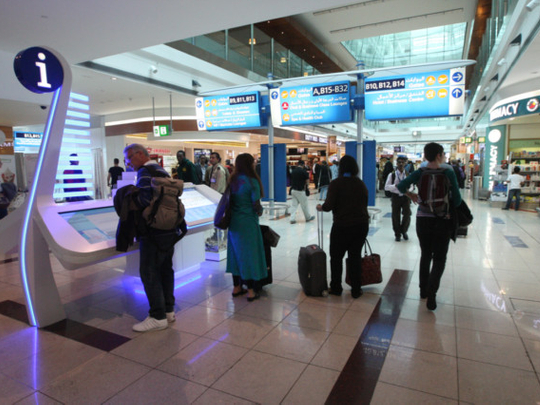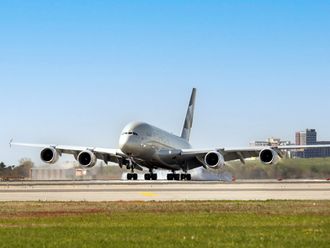
Dubai: Dubai International, the world’s second busiest international hub, is getting busier. It’s year to date passenger numbers are up 15.3 per cent and there is fair chance the airport will surpass the 65.4 million passenger forecast for 2013.
A total of 60,384,407 passengers have travelled through Dubai International up until November compared with 52,363,589 over the same period last year.
Eastern Europe and Australaisa spearheaded November growth with a 56.5 per cent and 33.4 per cent respective increase in passengers. Subsequently, Australasia recorded the fourth largest increase in total passengers with 51,151.
Dubai Airports, the management team behind Dubai International, stated that the Qantas-Emirates partnerships is feeding traffic into the airport.
Qantas and Emirates are benefiting too, Tony Webber, Associate Professor at the University of Sydney and former Chief Economist at Qantas, told Gulf News in an emailed statement that reduced competition and capacity on the Australia-Dubai route is helping the two airlines.
“Qantas benefits because it offers a better Europe proposition for Australians and a better Australian proposition for European compared to a go it a lone scenario,” he stated.
Qantas only flies to London Heathrow via Dubai; however, passengers can connect in Dubai with Emirates to destinations across Europe.
Game changer
The Qantas-Emirates tie-up was seen as a game changer when it came into effect earlier this year. It saw Qantas move its traditional London-bound hub to Dubai from Asia and ended its long-time partnership with British Airways
But the Qantas Group, which includes budget carrier JetStar, has struggled to turn itself around since teaming up with Emirates. Warning of a A$300 million half-year loss, Qantas Chief Executive Alan Joyce recently criticised Singapore Airlines, Air New Zealand, and Abu Dhabi’s Eithad Airways investment in competitor Virgin Australia.
Joyce questioned the role of foreign government-backed airlines investing in its competitor although its own codeshare partner, Emirates, is itself owned by the Dubai government.
However, since then Emirates President Tim Clark has ruled out any suggestion of buying a stake in Qantas. In a statement to Australian media, he stated that Emirates did not have a “bottomless pit of cash.”
Webber states that its too early to assess whether or not the partnership was the right decision for Qantas.
“To say it’s a success you really need to demonstrate that the relationship has created new traffic or generated cost savings … the increase in traffic [to Dubai] is just a transfer from Singapore to Dubai,” he stated.
With the jury still out on the Qantas-Emirates relationship, Webber states that the big risk for Qantas is in five years when the relationship ends, Emirates may have won over Qantas passengers and no longer need the tie-up.












